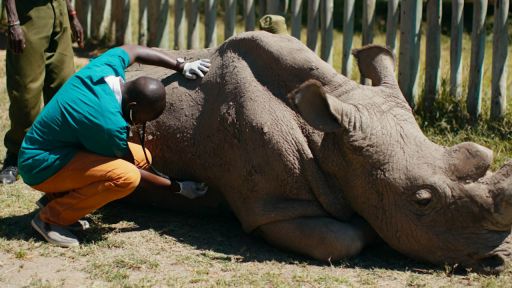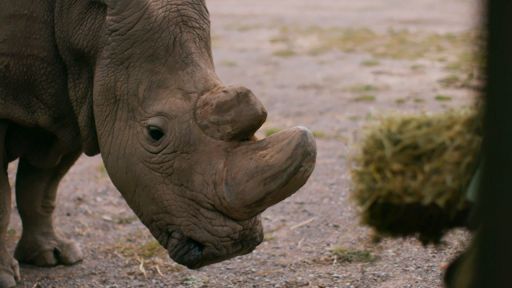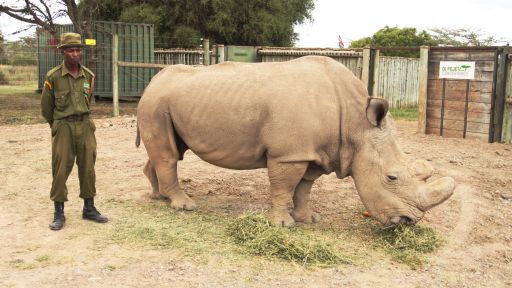Nature: The Last Rhino introduces viewers to Sudan, the very last male Northern White Rhinoceros. His harrowing journey is told through the international cast of characters who have been involved in Sudan’s life, from when he was snatched as a calf from his mother’s side in war-torn Central Africa, to his captivity as a prized exhibit in a cold, concrete zoo behind the Iron Curtain while poaching devastated his kind to extinction back home. Now 43 years old and half-blind, Sudan is living out his days under the 24-hour watch of an armed guard, on a protective sanctuary in Kenya. Meanwhile, a team of scientists and experts led by Professor Thomas Hildebrandt from the Leibniz Institute for Zoo and Wildlife Research turn to technology in a race against time to save this majestic rhino subspecies whose origins date back at least five million years. One hour.
Noteworthy Facts:
- Sudan was first captured in February 1975 from a South Sudan game reserve and sent 7,000 miles to a remote zoo in the former Czechoslovakia. He is one of only three Northern White Rhinos left on the planet, and the only remaining male.
- Sudan now lives in Ol Pejeta conservancy in Kenya with the world’s only two female Northern White Rhinos. He’s achieved celebrity status around the world with those who have taken up the cause of saving these magnificent creatures.
- The White Rhinoceros, found only in Africa, has two genetically distinct subspecies – the Northern White Rhino and the Southern White Rhino. The White Rhino is the largest land mammal after the elephant and the only rhino to have a square, wide upper lip, which helps it graze.
- Ceratotherium simum cottoni, or the Northern White Rhino, once roamed widely across the grasslands and savannas of Africa, but is now completely extinct in the wild due to extreme poaching.
- The Southern White Rhino, or Ceratotherium simum simum, has successfully been brought back from the brink of extinction through careful protection and management. They are now classified as near endangered.
Buzzworthy Moments:
- A troop of security officers, natives of the Bushland, protect the reservation from potential poachers. “To protect these animals, you have to risk your life,” says one of the officers. They have had to stop several poaching attempts this year.
- Since the three living Northern White Rhinos are unable to produce more children the natural way, in vitro fertilization (IVF) is the only viable solution. To test this process, a group of scientists sedate Carla, a Southern White Rhinoceros, to extract her eggs. The extraction is very difficult and precise, allowing no room for error.



